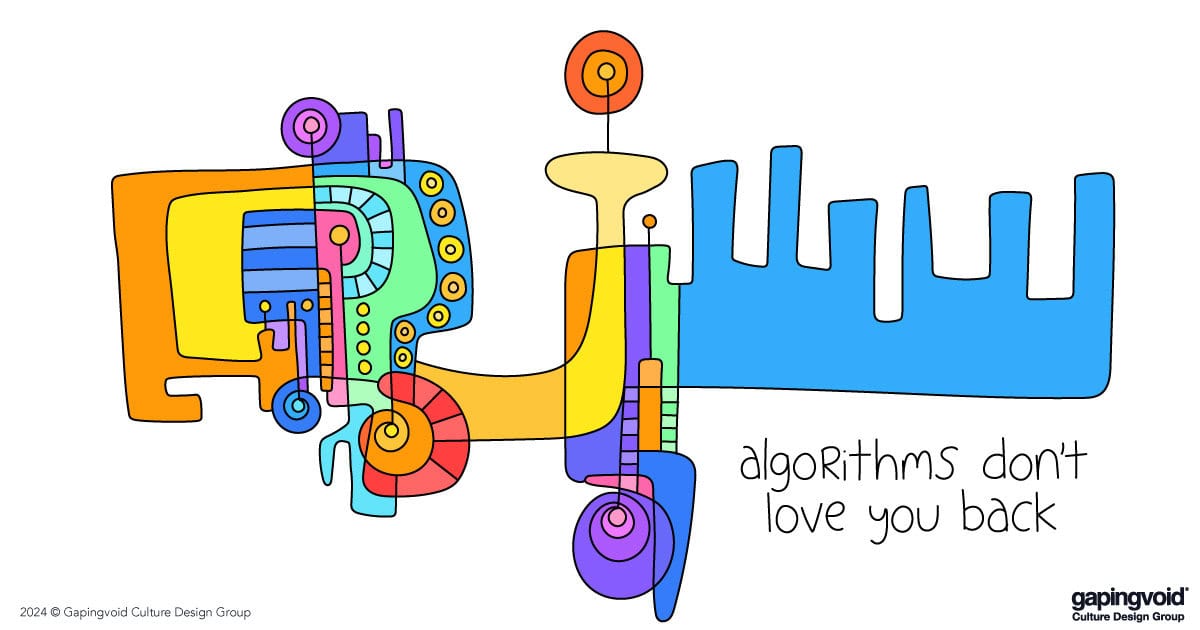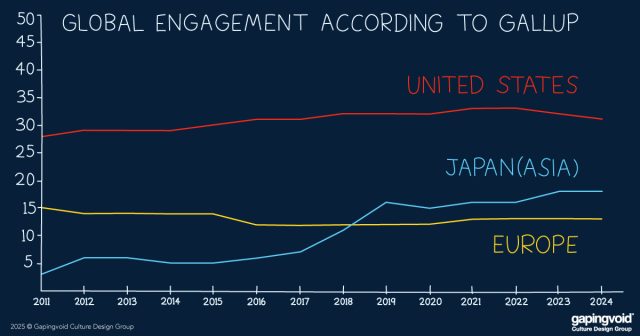
Back in 1949, George Orwell was already predicting algorithmic content In his best-known novel, “1984:”
“There was a whole chain of separate departments dealing with proletarian literature, music, drama, and entertainment generally. Here were produced rubbishy newspapers containing almost nothing except sport, crime, and astrology, sensational five-cent novelettes, films oozing with sex, and sentimental songs which were composed entirely by mechanical means on a special kind of kaleidoscope known as a versificator.”
A “versificator.” It’s not all that different from a lot of what we’re seeing emerge these days.
While AI can be terribly clever, everyone can already spot the problem with it.
A machine is not going to create Lawrence Of Arabia.
A machine is not going to create the Grosse Fugue.
A machine is not going to create Guernica.
A machine is not going to create Crime And Punishment.
A machine is not going to create the Sagrada Familia.
There’s many, many reasons why that is, but here is a big one:
Because the machine doesn’t care.
We do, you see.
The billionaire investor and co-founder of PayPal, Peter Thiel, made headlines recently when, during an interview, he said that AI was going to disrupt a helluva lot of industries, making math-skills far less valuable, and verbal skills, much more so.
“It’s going to be much worse for math people than word people… People have told me that in the next 3-5 years, AI will be able to solve all the US Maths Olympiad problems. That would shift things quite a bit.”
Who would’ve guessed a decade ago that the “Learn To Code” meme could actually end up being terrible advice?
Logically this should not come as a surprise. Code doesn’t care who wrote it.
As a fellow named Bechir Trabelsi remarked over on LinkedIn, Apple didn’t become the world’s biggest company because it could hire better coders than its competitors (far from it), it did so because it could touch the human heart better than any of them.
Or another way of putting it, machines are very good at solving PROBLEMS, but not very good for solving THE PROBLEM.
THE PROBLEM of being alive. The problem of being conscious in the universe. That is what art is for. That is what connection is for. That is what leadership is for.
The future belongs to the people who can actually tell the difference.



